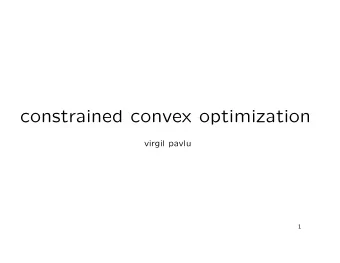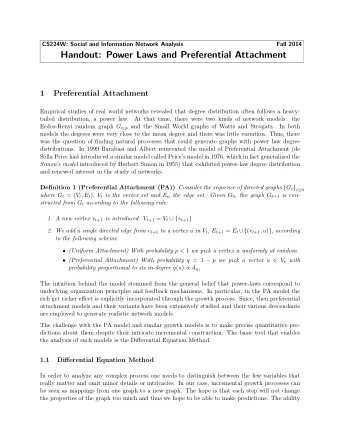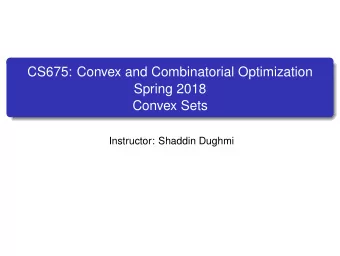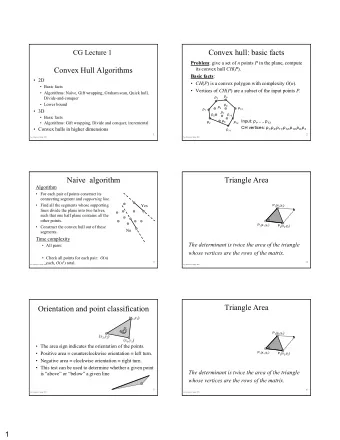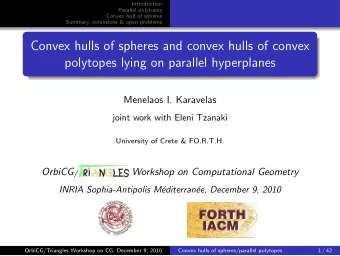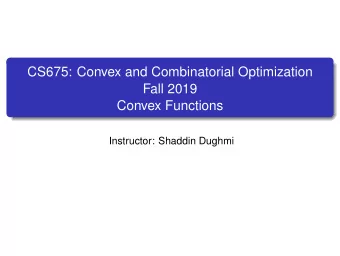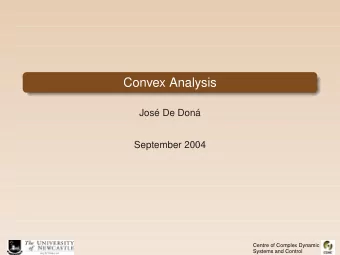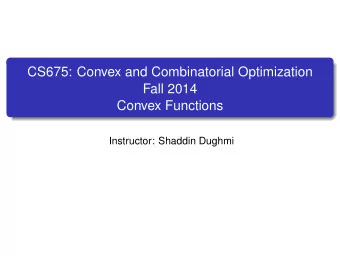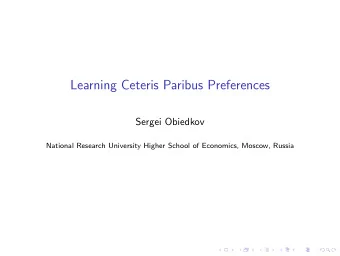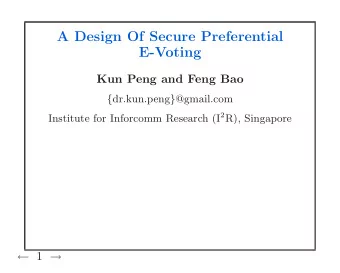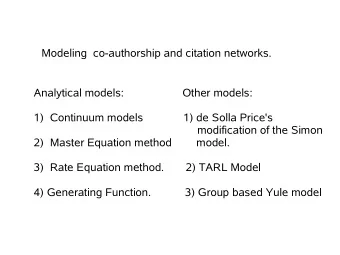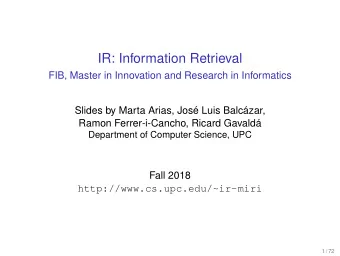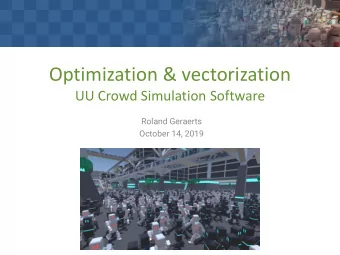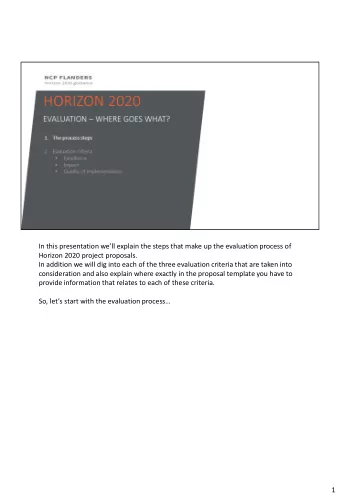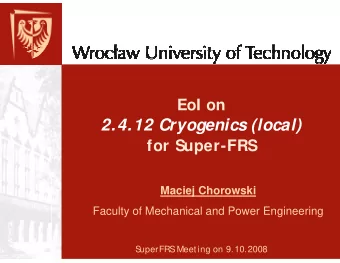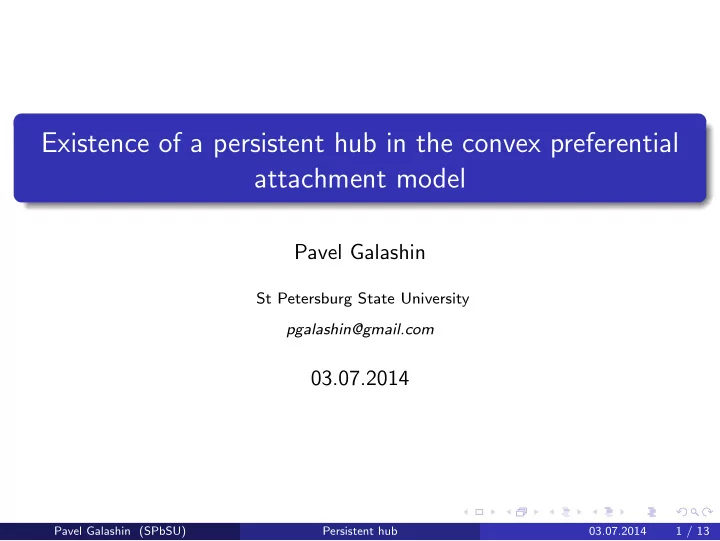
Existence of a persistent hub in the convex preferential attachment - PowerPoint PPT Presentation
page.1 Existence of a persistent hub in the convex preferential attachment model Pavel Galashin St Petersburg State University pgalashin@gmail.com 03.07.2014 Pavel Galashin (SPbSU) Persistent hub 03.07.2014 1 / 13 page.2 Barab
page.1 Existence of a persistent hub in the convex preferential attachment model Pavel Galashin St Petersburg State University pgalashin@gmail.com 03.07.2014 Pavel Galashin (SPbSU) Persistent hub 03.07.2014 1 / 13
page.2 Barab´ asi-Albert random graph V 8 V 1 V 6 V 12 V 2 V 7 V 13 V 3 V 5 V 4 V 9 V 11 V 10 Pavel Galashin (SPbSU) Persistent hub 03.07.2014 2 / 13
page.3 Barab´ asi-Albert random graph 1 / 22 6 / 22 1 / 22 1 / 22 4 / 22 2 / 22 V 13 2 / 22 1 / 22 1 / 22 1 / 22 1 / 22 1 / 22 Pavel Galashin (SPbSU) Persistent hub 03.07.2014 3 / 13
page.4 Persistent hub Question Is there always a vertex which has the maximal degree for all but finitely many steps? Definition Such vertex is called a persistent hub . Theorem A persistent hub appears with probability 1 . Pavel Galashin (SPbSU) Persistent hub 03.07.2014 4 / 13
page.5 Two-dimensional random walk B A + B A B A + B ( A , B ) A Pavel Galashin (SPbSU) Persistent hub 03.07.2014 5 / 13
page.6 Probabilities of paths Lemma Let ( A 1 , B 1 ) and ( A 2 , B 2 ) be two points. Then for any path S connecting these points its probability equals P ( S ) = A 1 · ( A 1 + 1) · ... · ( A 2 − 1) · B 1 · ( B 1 + 1) · ... · ( B 2 − 1) . ( A 1 + B 1 ) · ( A 1 + B 1 + 1) · ... · ( A 2 + B 2 − 1) Remark This probability does not depend on S. Pavel Galashin (SPbSU) Persistent hub 03.07.2014 6 / 13
page.7 The probability of crossing the diagonal ( m , m ) A P [( A , 1) → diagonal ] ≤ P ( A ) / 2 A . Pavel Galashin (SPbSU) Persistent hub 03.07.2014 7 / 13
page.8 Finite number of leaders Lemma P [( A , 1) → diagonal ] ≤ P ( A ) / 2 A . Lemma The degree of the first vertex after n-th step grows like C √ n for some random non-zero constant C. Corollary For almost all vertices their degree will always be lower than the degree of the first vertex, because the series P ( C √ n ) ∞ � 2 C √ n n =1 is convergent for any C. Pavel Galashin (SPbSU) Persistent hub 03.07.2014 8 / 13
page.9 P´ olya urn Proposition If our random walk starts at the point ( A , 1) then the quantity A k / ( A k + B k ) tends to some random variable H ( A ) as k tends to infinity. Moreover, H ( A ) has a beta probability distribution: H ( A ) ∼ Beta (1 , A ) . Corollary The random walk crosses the diagonal only finitely many times. Pavel Galashin (SPbSU) Persistent hub 03.07.2014 9 / 13
page.10 Weighted preferential attachment Generalized model Probability of assigning new edge to a vertex of degree k is proportional to W ( k ) for some weight function W : N → R > 0 . Linear model W ( k ) = k + β, β > − 1 . Convex model W ( k ) is convex and unbounded. Theorem The persistent hub appears with probability 1 also in the linear and convex models. Pavel Galashin (SPbSU) Persistent hub 03.07.2014 10 / 13
page.11 Difficulties Model Total weight of the All pathes are Beta limiting vertices is random equally likely distribution Basic No Yes Yes Linear No Yes Yes Convex Yes No No Pavel Galashin (SPbSU) Persistent hub 03.07.2014 11 / 13
page.12 Comparison with the linear model 10 9 8 7 W ( k ) 6 5 4 3 2 1 − 1 1 2 3 4 5 6 7 8 9 10 11 0 Pavel Galashin (SPbSU) Persistent hub 03.07.2014 12 / 13
page.13 Thank you! Pavel Galashin (SPbSU) Persistent hub 03.07.2014 13 / 13
Recommend
More recommend
Explore More Topics
Stay informed with curated content and fresh updates.



